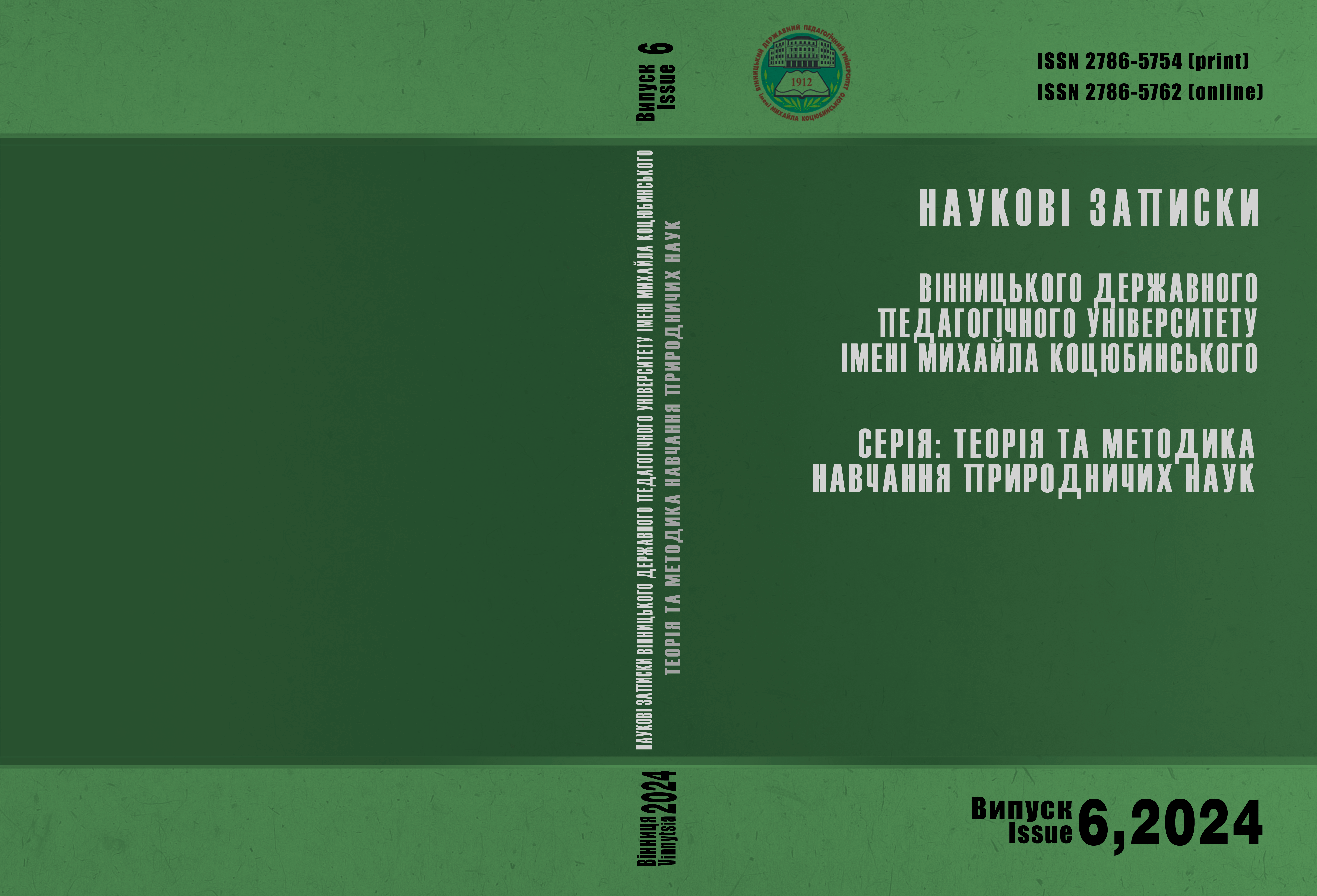Abstract
A shift of the science and technology from eco-unfriendly to nature-friendly is reflected in environmental education, which is aimed at improving of the moral values, consumption structure and relationship between human and nature. The purpose of research is to consider the directions of development of the ability of the students to put the environmental component of education into practice upon learning the teaching of the subjects in the higher education institutions. The author discusses the changes being made in the last update of the chemistry curriculum for the secondary school (2017) in accordance with the conception “New Ukrainian school 2016”, dealing with the requirements for the development of the key subject competencies as well as the new structural element of the program “Through content lines” intended to the implementation of the competency-based approach in teaching chemistry. The author suggests that the deep understanding of these changes by the students, especially in the course of mastering by the students such a core competencies as “Environmental awareness and healthy lifestyle”, “Basic competencies in science and technology” is an essential requirement for development of being able to put the environmental component of education into a future practice, that performs in two ways: project-based learning and competency-based learning with the focus on the green tasks.
Project-based learning as an educational approach combines research, creative and problem-solving techniques. It was found that combined use of these methods at the different steps of projects life cycles allows shifting the focus from just reproduction of an array of knowledge by the students to the motivative educational journey, which encourages cognitive interest and promotes thinking of the future teachers.
Carrying out the projects on various topics, resolving the competency-targeted tasks, cross-disciplinary approach assumes sequentially structured work of the students on solving some tasks that is generally aimed at development of the students’ ability to put the environmental component of education into future practice.
References
Абжалов Р., Чайченко Н. Міжпредметні факультативи та курси за вибором міжпредметного змісту як пріоритетний напрям навчання хімії. Імідж сучасного педагога. 2013. № 6 (135). С. 5-9.
Буринська Н. M. Екологічна складова у змісті шкільної хімічної освіти. Біологія і хімія в школі. 1998. № 1. С. 18–20.
Величко Л. П. Компетентнісний і зунівський підходи в навчанні: порівняння ознак. Біологія і хімія в рідній школі. 2017. № 4. С. 2-5.
Величко Л. П., Вороненко Т. І., Нетрибійчук О. С. Навчання хімії учнів основної школи: методичний посібник. Київ: «Конві Прінт», 2019. 192 с.
Вороненко Т. І. Реалізація екологічної складової курсу хімії. Біологія і хімія в сучасній школі. 2013. № 2. С. 31.
Вороненко Т. І. Наскрізні змістові лінії в курсі хімії основної школи «Екологічна безпека і сталий розвиток». Біологія і хімія в рідній школі. 2018. № 4. С. 12-14.
Дідусь Г. В., Лукашова Н. І. Особливості екологічної складової у змісті шкільної хімічної освіти. Збірник статей «Фундаментальні та прикладні дослідження в сучасній хімії» (м. Ніжин, 12 квітня 2018 р.) Ніжин: Вид-во НДУ ім. М. В. Гоголя, 2018. С. 53–56.
Заблоцька О. C., Величко Л.П. Вплив на довкілля як ланка в ланцюзі характеристики речовин. Біологія і хімія в сучасній школі. 2013. № 6. С. 7–13.
Коробова І. В. Проектувальна компетенція учителя фізики як складова його методичної компетенції. Педагогічні науки: теорія, історія, інноваційні технології. 2012. № 5 (23). С. 367–376.
Коршевнюк Т. В. Ситуаційні завдання в компетентнісно-орієнтованому навчанні біології. Біологія і хімія в рідній школі. 2019. № 1. С. 2-6.
Кочерга І. І., Лукашова Н. І., Липова Л. А., Бобров В. Я., Ясинська А. М. Основи хімічної екології: навчально-методичний посібник. Ніжин: Вид-во НДУ ім. М. В. Гоголя, 2003. 152с.
Лабінська О. М. Реалізація екологічної складової у навчанні хімії учнів основної школи Словацької Республіки: автореф. … канд. пед. наук: 13.00.02. Київ, 2021. 19 с.
Хімія. 7-9 класи. Навчальна програма для загальноосвітніх навчальних закладів зі змінами, затверджена Наказом МОН України від 07.06.2017 р. № 804. https://mon.gov.ua/storage/app/media/zagalna%20serednya/programy-5-9-klas/onovlennya-12-2017/10-ximiya-7-9.doc
Щербина А. П., Щербина В. М. Екологічне виховання учнів на уроках хімії та в позакласній роботі. Наукові записки Ніжинського державного університету ім. Миколи Гоголя. Сер. : Психолого-педагогічні науки, 2012. № 1. С. 118–122.

This work is licensed under a Creative Commons Attribution 4.0 International License.
Copyright (c) 2024 Nina Lukashova

